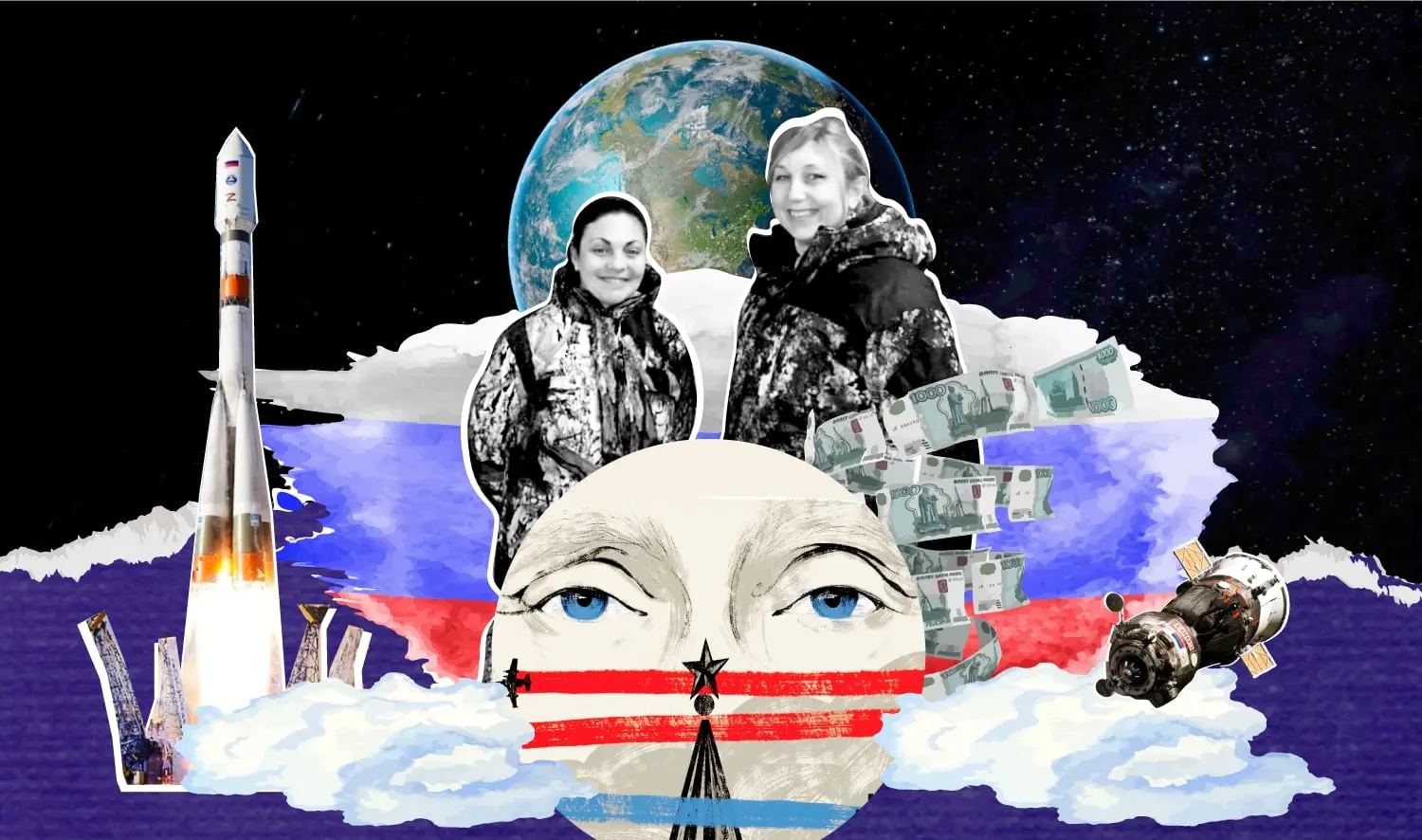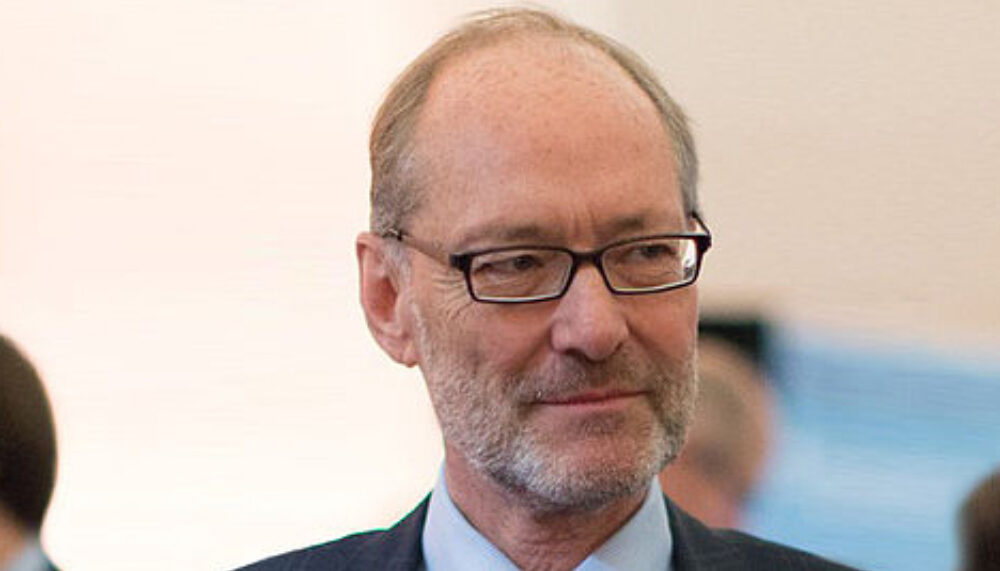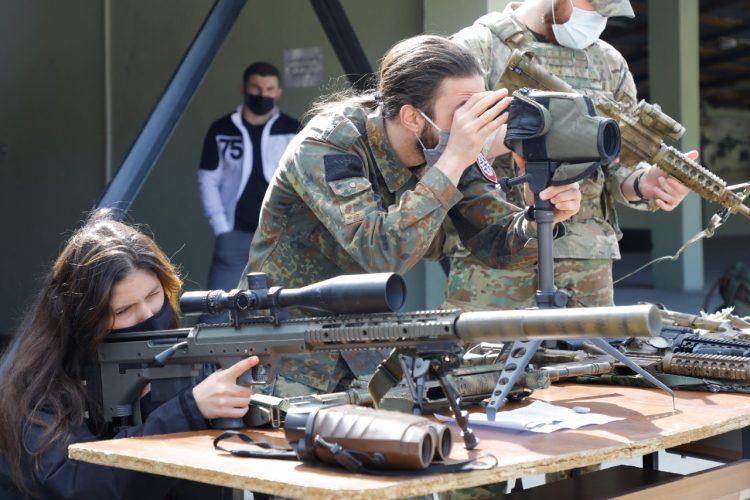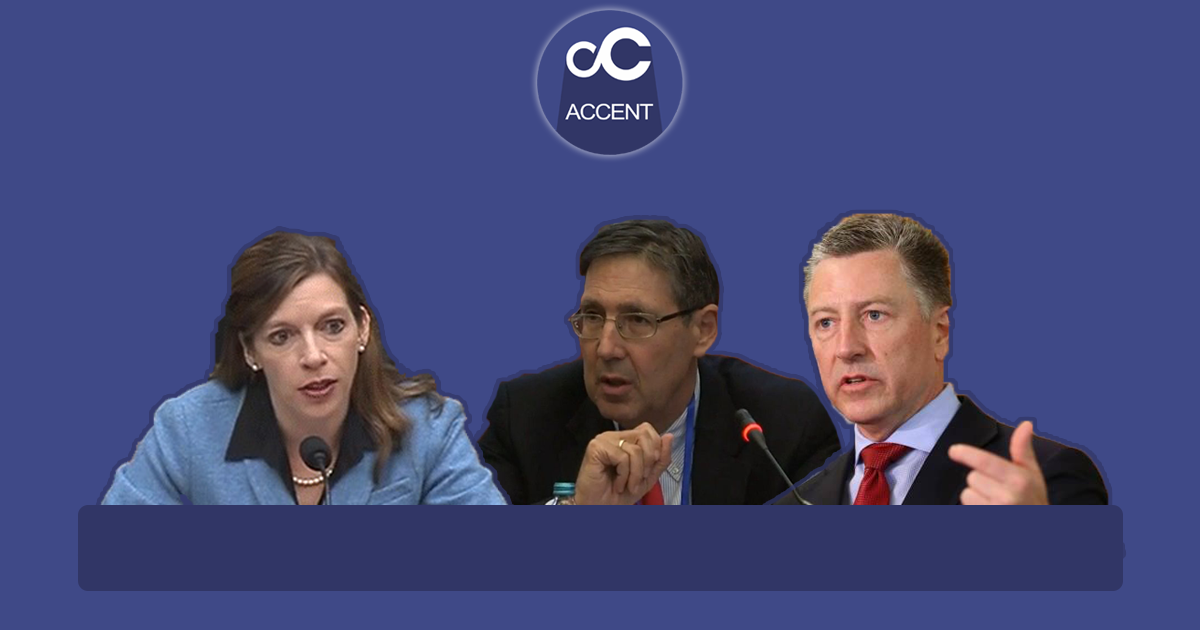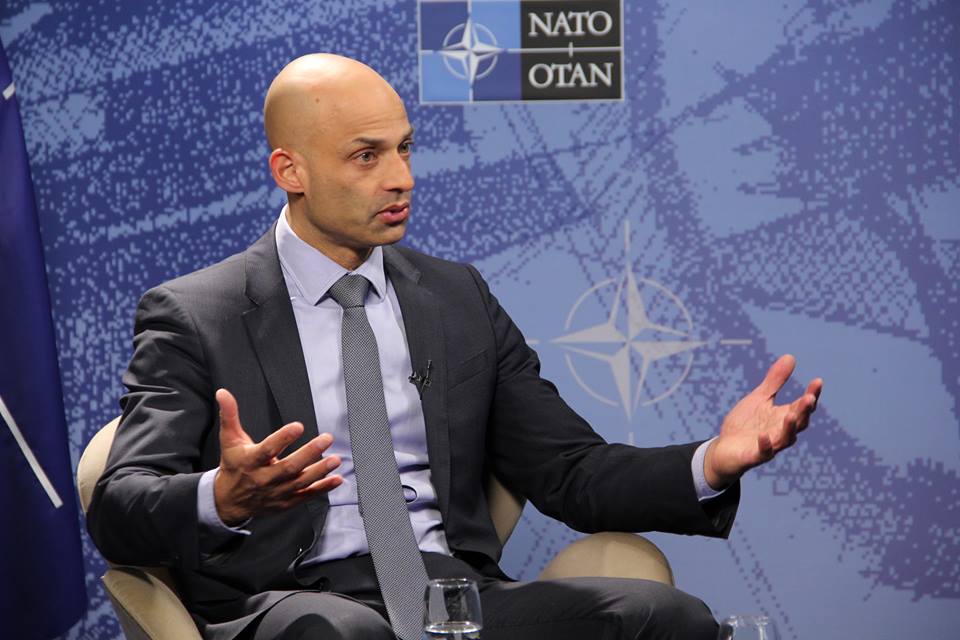
Appathurai - Preparing for NATO membership means also strengthening the rule of law and implementing further judiciary reform
02/10/2020 09:16:08 Interview
NATO Deputy Assistant Secretary General for Political Affairs and Security Policy and NATO Secretary General’s Special Representative for Caucasus and Central Asia, Mr. James Appathurai's interview with the Accent.
- Mr. Appathurai, there have been a lot of statements since the Bucharest Summit, that Georgia has the prospect of joining NATO. In your opinion, what would strengthen the country's move towards NATO? Could you tell us the specific issues on which Georgia should work in order to meet all necessary requirements for NATO membership?
- Indeed, the Open Door policy is enshrined in NATO’s founding Treaty, and we are committed to it. Our door remains open for European democracies that can further the principles of the Alliance, share our values, and are ready for membership. A specific commitment was made in this regard with respect to Georgia during the 2008 Bucharest Summit. This is one of the reasons why NATO attaches so much importance to our relationship with Georgia. This was once again highlighted this week by the NATO Secretary General, on the occasion of your Prime Minister Giorgi Gakharia’s visit to Brussels. We are very proud of how far our cooperation has grown. Georgia is one of our most important partners: it contributes to our shared security in many different ways, including by supporting our efforts in Afghanistan. Early this year, Allies agreed to strengthen our partnership even further, by sharing more air traffic data, working jointly to address hybrid threats, and conducting joint exercises in the Black Sea region.
We also welcome the progress made by Georgia on reforms, including modernizing its armed forces, strengthening its democratic system, and transforming its economy over the years. Looking beyond the current elections, it is important to maintain the momentum. As NATO Secretary General Stoltenberg has said, Georgia should continue to make full use of all opportunities to come closer to NATO and to prepare for membership. This means not only in the area of defence but also by strengthening the rule of law and implementing further judiciary reform.
- One of the key requirements for NATO membership is strengthening democracy. Parliamentary elections are scheduled in Georgia for October 31. Some NGOs point to alleged voter bribery (from the opposition as well as from the ruling party), dismissal from jobs on political grounds, etc, in the pre-election period. How would you assess the current situation in Georgia in terms of democratic development?
- Georgia has an impressive track-record when it comes to reforms. Having said that, it is important not to rest on ones laurels. I believe it is important for Georgia that first and foremost the forthcoming elections meet the highest international standards. We also hope that over time a culture develops where opposition and government work together more constructively. Considering the broad consensus in Georgia in pursuing reforms to prepare for NATO and EU membership, I believe there is a good basis for such constructive relations.
- Russia's massive cyber-attack carried out on Georgia last year showed the seriousness of the threat. How reasonable are the expectations that Russia will try to interfere in the 2020 parliamentary elections and what kind of assistance does the Alliance provide to Georgia in the field of cyber security?
- NATO Allies and partners have experienced various forms of interference directed from Russia in recent years. These have often been in a so-called hybrid form and include activities within the cyber domain. Allies and partners are increasingly vigilant and building up resilience to withstand such interference. This requires a lot of national planning efforts and resources. NATO is ready to support Georgia in this regard – along with other international organizations.
- NATO has substantially increased its presence in the Black Sea region over the past few years. In the light of the events in Belarus, is the Alliance planning to take any additional measures?
- We have not engaged in any specific military activities or exercises in response to the recent developments in Belarus. However, we have seen a massive Russian military build-up especially since Russia’s illegal and illegitimate annexation of Crimea in 2014. This is part of a pattern of destabilizing behaviour from the Barents to the Baltic Sea, as well as in the Mediterranean and in the Black Sea. In response to these activities, NATO has increased its presence in the Black Sea region - on land, in the skies and on the sea. We have also increased our situational awareness. In addition we have agreed a package of measures to engage more with our partners in the region, primarily Georgia and Ukraine. This includes the training of maritime forces and coast guards; port visits and exercises; and sharing information. NATO’s standing naval groups have trained with Georgian Coast Guard officers, improving our ability to work together. We also intend to enhance the maritime component of our assistance to Georgia through the Substantial NATO-Georgia Package. In short, NATO remains strongly committed to security in the Black Sea region.
- Sokhumi and Tskhinvali are constantly concerned about the military exercises held in the rest of Georgia. As they stated, not only NATO membership, but also Georgia’s NATO aspiration is a direct threat to them. What would you say about this?
- Georgia is actively engaged in the international discussions in Geneva and has unilaterally declared it would refrain from the use of force in the context of the unresolved conflicts. Russia has refused to undertake a similar commitment. I presume the people who live in these Georgian regions are aware of this fact. In addition Georgia’s aspiration to join NATO means that it is strengthening its democratic institutions and the rule of law, alongside a modernization of the security sector, which is intended to make it both more professional and more accountable. It seems to me that the people in these Georgian regions should view Georgia’s transformation into a modern European democracy not as a threat, but as a positive development and one that holds promise for the future.
More broadly, NATO respects Georgia’s territorial integrity, sovereignty and independence within internationally recognized borders, as we have stated many times. And we commend Georgia for its patience and commitment within the Geneva International Discussions.
- What is the current situation in the Alliance itself? Which European countries spend 2% of GDP on defence? How united and strong is NATO to properly deter Russia's aggressive policy in the world?
- Investing in our defence is necessary to keep our people safe in a more unpredictable world. All NATO Allies understand this. At the Wales Summit in 2014, Allies agreed to stop cutting defence budgets, increase defence expenditures as GDP grows, and to move towards spending 2% of their GDP on defence within a decade. We are keeping that pledge. In 2019, nine Allies reached the 2% defence spending guideline, up from three Allies in 2014. Allies are also investing more in modern capabilities, and stepping up with more forces for NATO missions and operations. We must maintain the momentum, because we face a more unpredictable world.
There is also a great deal of consensus amongst Allies on how to respond to Russia. For years, NATO worked to build a cooperative relationship with Russia, but Russia’s aggressive actions, including the use of force to attain political goals, undermine Euro-Atlantic security. Russia has used force against its neighbours, such as in 2008 in Georgia, has engaged in hybrid attacks and has interfered in our democratic processes. Russia also bears responsibility for the demise of the 1987 Treaty on Intermediate-Range Nuclear Forces. We maintain a dual-track approach to Russia. This means we invest in deterrence and defence on the one hand, and seek to engage in meaningful dialogue on the other. The dialogue should allow us to communicate clearly our positions and to reduce the risk of incidents or accidents. We do not want a new arms race or a new Cold War. We continue to aspire for a constructive relationship with Russia, when Russia’s actions make that possible.
Marika Chubinidze






